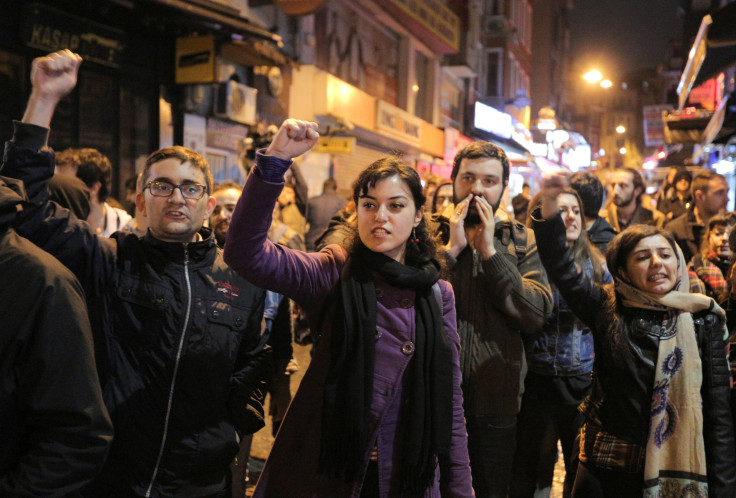Turkey News: Erdogan Wins Referendum On Changing Government

Turkish President Recep Tayyip Erdogan claimed a narrow victory Sunday in voting on constitutional amendments that replace the country’s parliamentary government with a strong president.
The opposition Republican People’s Party, however, planned to file an objection to the results, claiming they were manipulated. "We will pursue a legal battle. If the irregularities are not fixed, there will be a serious legitimacy discussion," deputy party chairman Bulent Tezcan said.
Read: Turkey Threatens To Send '15K Refugees A Month' To Germany And Netherlands
The pro-Kurdish People’s Democratic Party also pledged to challenge the vote.
“Today, Turkey gave a historic decision on its governance system which has been an immemorial matter of debate for 200 years,” Erdogan said, hailing the vote, which followed a two-month campaign.
Read: Assad Winning As US, Russia Join Forces Against Turkey
The package of 18 amendments was approved 51 percent to 49 percent. Erdogan said the changes were needed to address the country’s security concerns.
Erdogan called for the changes because the current constitution was written by the nation’s generals following a 1980 military coup. Since he was elected in 2014, Erdogan has taken what was largely a ceremonial position and made it more consequential. Before becoming president, he led the country as prime minister.
A failed coup attempt last year has led to the arrests of tens of thousands of Turks.
"This is our opportunity to take back control of our country," Bayram Seker, 42, told Reuters after voting "Yes" in Istanbul.
"I don't think one-man rule is such a scary thing. Turkey has been ruled in the past by one man," he said, referring to Mustafa Kemal Ataturk, who founded modern-day Turkey.
Opponents said the changes open the way to authoritarianism.
The constitutional amendments give executive power to the president and vice president, and merge the presidency and the prime ministry for a more “functional and effective system of governing.” The measures also lower the age of parliamentary candidates from 25 to 18 and increase the number of seats to 600 from 550. The Supreme Board of Judges and Prosecutors also will be overhauled, reducing their number from 17 to 15 and abolishing military commissions and courts.
General elections will be held every five years instead of four, with the presidential election held concurrently. The amendments also abolish the Cabinet but allow the president to appoint ministers. Parliament will have the power to discuss and change executive decrees, but the president will be able to dissolve Parliament.
Voting began at 7 a.m. but there was no question on the ballot, just an option for “yes” or “no.” Three people were shot to death near a polling station in southeastern Turkey, reportedly in a dispute over how they were voting.
Turkey expert Simon Waldman of King’s College in London wrote in a Globe and Mail op-ed the vote left Turkey more divided than ever.
“Erdogan will now claim legitimacy to the power he has already seized and enjoy the additional perk of appointing government ministers without parliamentary consultation. He will be able to lead a political party, giving him sway over the legislative process,” Waldman wrote, saying the changes will allow Erdogan to rule without checks and balances.
Waldman predicted a purge against opposition leaders, more EU bashing and reinstatement of the death penalty, as well as expansion of Islamic schools and no reconciliation with the Kurds.
The Council of Europe advised Turkey’s leaders to consider their next steps carefully, Reuters reported.
© Copyright IBTimes 2024. All rights reserved.












